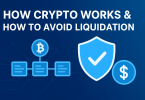Understanding Hacking:
Originally, “hacker” was a term used to describe an expert in computer programming who mastered machine code and the operating systems of the computer. In today’s world, ‘a hacker’ is generally considered as a person who hacks and has made hacking his way of life and attitude to life. Hacking in this sense entails changing the characteristics of a system with the aim of fulfilling objectives that the designer did not have in mind.
Ethical Hacker’s 10 Steps:
- Gain Proficiency in LINUX/UNIX:
LINUX/UNIX is an operating system that is freely available and possesses better security features than computer systems. Ethical hackers should be conversant with LINUX which is widely used in hacking and contains several tools for this practice. Some of the common distributions are Red Hat Linux, Ubuntu, Kali Linux, and BackTrack in which Kali Linux is specialized for hacking.
- Master Fundamental Programming Languages:
C is known as one of the most fundamental programming languages, and UNIX/LINUX systems are both based on C language; therefore, knowing C enables hackers to fully take advantage of the LINUX open-source system. Also, the knowledge of several programming languages is helpful. Key languages for hackers include…
- Python: This is commonly used in achievement writing.
- JavaScript: Great for hacking web applications.
- PHP: Assists in countering evil doers.
- SQL: Great for hacking big bases of individuals.
- Learn to Maintain Anonymity:
Anonymity is essential to ethical hackers to ensure that they do not easily get caught while operating online. Ethical hackers should be able to mask his/her presence as they work using tools like Anonsurf, Proxychains and MacChanger.
- Acquire Networking Knowledge:
Knowledge of the tools of computer networks such as Nmap and Wireshark is crucial.
Important networking concepts embrace:
- TCP/IP Network
- Subnetting
- Network Masks and CIDR
- Simple Network Management Protocol (SNMP)
- Domain Name Service (DNS)
- Address Resolution Protocol (ARP)
- Wireless Networks
- Bluetooth Networks
- SCADA Networks (Modbus)
- Automobile Networks (CAN)
- Explore the Hidden Web:
The hidden web, which requires permission or software like Tor to access, is a major focus. It has other legal uses other than criminal acts that ethical hackers should know.
- Develop Skills in Cryptography:
Encryption, or hidden writing, is one of the main competencies of an ethical hacker. This involves knowledge in the algorithms for securing information as well as knowledge in decrypting the secured information to ensure that it is secure from tampering, or interception by unauthorized persons and to also ensure that the information is original.
- Learn about Advanced Hacking Topics:
Once basic concepts have been understood ethical hackers should go a step further and learn about SQL injections, penetration testing and vulnerability assessments.
- Identify and manage Vulnerabilities:
Ethical hackers should be in a position to recognize system and network weaknesses. Tools available in Kali Linux for this purpose include…
- Nessus Vulnerability Scanner: Mainly used to discover weaknesses in web applications and multiple systems.
- OpenVAS Vulnerability Scanner: Identifies weaknesses in the network devices.
- Nikto Vulnerability Scanner: Recognizes weaknesses of web servers.
- Nmap Vulnerability Scanner: Interrogates many targets for susceptibilities.
- Wapiti Vulnerability Scanner: Hedera detects web application vulnerabilities such as XSS and SQLi.
- Practice and Experiment:
Analyzing the information above, it can be stated that regular practice and learning from new experiences are the main prerequisites for ethical hacking. Ethical hackers should work in conditions and settings of different environments, performing different types of attacks and using different tools.
- Interact with Professional Hackers:
It is essential to become an active member of the communities and forums to become a good ethical hacker. By communicating with other hackers, one can share information, work together on certain projects, and be aware of the trends in the field. Discord, Facebook and Telegram are among the platforms that have several groups where ethical hackers can engage in the sharing of knowledge and skills on how to solve certain problems. This constant communication helps acquire new techniques and methodologies, thus creating a synergy that is crucial in the growth of the hacking fraternity.
Final Discussion:
Having good control over the use of computers is mandatory for practicing ethical hacking. This guide explained the ten key steps, ranging from mastering core programming languages such as C and Python to understanding networks and cryptography. We took you to the mysterious dark web and discussed complex hacking ideas to prepare you for complex security scenarios. Just always bear in mind that the journey is an ongoing process. It all comes down to practice, practice, practice, and constant testing of the skills in addition to being an active member of the ethical hacking community. When working with like-minded hackers, you will gain the relevant information and materials. Ethical hacking is a lucrative profession and at the same time helps to strengthen the protection of computer systems around the world.








Leave a Comment